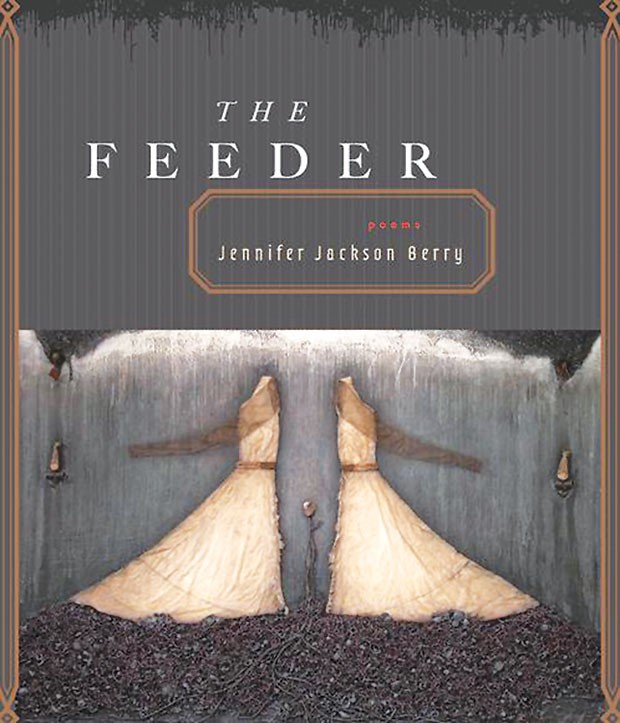Poet Jennifer Jackson Berry’s The Feeder is a strong collection
She writes in a voice powerful and genuine

In a 1994 interview with The Paris Review, Pulitzer Prize-winner and Wilkinsburg native W.D. Snodgrass stated that confessionalism remains “a journalistic tag, not very accurate. It sounds either like you’re some kind of religious poet, which I am not, or as if you write bedroom memoirs. … [M]y poems were called confessional because I wrote about the facts of my own life.” By this estimation, much creative writing, including local poet Jennifer Jackson Berry’s debut full-length collection, The Feeder (YesYes Books), might be labeled this way as well.
Berry, who lives in Pittsburgh, is editor-in-chief of Pittsburgh Poetry Review and assistant editor of WomanArts Quarterly Journal. She is the author of the chapbooks When I Was a Girl and Nothing But Candy, and much work in The Feeder’s 89 pages has been featured there and in a slew of lit mags. It’s welcome exposure for a poet whose strongest poems focus on the physical, sometimes through eating and sex, but always in a voice powerful and genuine.
In “I Did Things for the Stories,” Berry utilizes a speaker unafraid to laugh or cry about herself, writing, “My advice: eat things mayo-based, hot / from the sun. When you puke, / puke in the port-a-potty, / bare knees & hair loose. / At the pavilion after, / take another spoonful. / But don’t swat the wasp. / Let it happen. Let the sting happen.” Youthful indiscretion here morphs into the sweet reality of cohabitation’s bliss before the poem ends with, “we eat what’s gone / bad together, / the dead, the dying / the never-born.” Caesura here adds power to clipped lines.
Indeed, the last phrase points to another theme of The Feeder: infertility and miscarriage. These themes are best reflected in “What Not to Do,” when the speaker plainly says, “Don’t text me pictures of your kids. / Don’t ask me when we’ll try again. / Don’t tell me to use this as a springboard for weight loss.” The list-y nature of the requests frame painful imagery of “clots & tissue.” It’s an emotional series that’ll leave readers thinking of times they were at a loss to say the right thing, reminding this reader of Catherine Tufariello’s equally powerful poem “Useful Advice.”
While some of its poems seem strangely fetishistic, The Feeder, as a collection, remains hauntingly honest, speaking truths to what it means to be alive in bodies we don’t get to choose.
Berry, who lives in Pittsburgh, is editor-in-chief of Pittsburgh Poetry Review and assistant editor of WomanArts Quarterly Journal. She is the author of the chapbooks When I Was a Girl and Nothing But Candy, and much work in The Feeder’s 89 pages has been featured there and in a slew of lit mags. It’s welcome exposure for a poet whose strongest poems focus on the physical, sometimes through eating and sex, but always in a voice powerful and genuine.
In “I Did Things for the Stories,” Berry utilizes a speaker unafraid to laugh or cry about herself, writing, “My advice: eat things mayo-based, hot / from the sun. When you puke, / puke in the port-a-potty, / bare knees & hair loose. / At the pavilion after, / take another spoonful. / But don’t swat the wasp. / Let it happen. Let the sting happen.” Youthful indiscretion here morphs into the sweet reality of cohabitation’s bliss before the poem ends with, “we eat what’s gone / bad together, / the dead, the dying / the never-born.” Caesura here adds power to clipped lines.
Indeed, the last phrase points to another theme of The Feeder: infertility and miscarriage. These themes are best reflected in “What Not to Do,” when the speaker plainly says, “Don’t text me pictures of your kids. / Don’t ask me when we’ll try again. / Don’t tell me to use this as a springboard for weight loss.” The list-y nature of the requests frame painful imagery of “clots & tissue.” It’s an emotional series that’ll leave readers thinking of times they were at a loss to say the right thing, reminding this reader of Catherine Tufariello’s equally powerful poem “Useful Advice.”
While some of its poems seem strangely fetishistic, The Feeder, as a collection, remains hauntingly honest, speaking truths to what it means to be alive in bodies we don’t get to choose.















